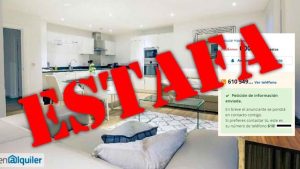EL CONTRATO
(THE LEASE)
Signing a lease
THE DEPOSIT (fianza):
Your potential landlord may also ask to see your “nómina” (paystub): to prove you have sufficient funds. If this happens, you should show them your Fulbright Spain Grant Authorization.
THE LEASE (el contrato):
If you are going to sign a lease (contrato), be sure that everything is clearly specified beforehand. It is most common to sign an informal version of a lease or rental contract when only renting a room in an apartment, because the formal lease is often for the entire apartment. When reviewing informal housing contacts, past grantees have found the EXAMPLE LEASE on Idealista to be a helpful point of reference.
If you have decided you’ve found the right place, tell the landlord as soon as possible. They will ask you for a fianza, or deposit, right then. You may be asked to pay this in cash or by bank transfer. Either way, make sure that there is a written record of you paying the deposit, either outlined in your contract or a separate receipt. This recibo, receipt, should include:
- The full name of the landlord (or roommate to whom you’re paying the fianza)
- Their DNI/NIE
- Amount paid
- Clear conditions as to when and how you will receive the deposit back.
You are likely giving them a full month’s rent, so it is very important to document this. Please understand that from the Commission we can do next to nothing if a landlord refuses to return your fianza at the end of the year.
In a few recent cases, grantees have been required to obtain an aval bancario, which is a bank guarantee that is expensive and occasionally problematic to obtain. You can ask your bank about this option, but if you can avoid getting an aval, do so. If the landlord insists on getting a guarantee in order to rent to you, it is likely not worth the hassle and expense of getting an aval.
Moving in:
Moving in: When you move into your new apartment, take pictures of everything so you have proof of the condition of the apartment when moving out. From the Commission, we can do next to nothing if a landlord refuses to return your fianza at the end of your stay.
There is one last scenario I want to bring up which is changing apartments. Your living situation is likely going to affect your overall experience, so it’s very important to always feel safe and comfortable. Therefore, if you are not happy in your situation, remember that you can make a change and you can do so at any time during the grant. Now, this will likely incur some extra costs and in most cases you will likely lose your fianza. If you do choose to move, please keep in mind that the Commission is unable to provide any additional funds to help cover those costs. This is why it is so important to do your homework before visiting an apartment and making any commitment.
Once you find that apartment and your new home in Spain, please enter your Spanish address on your Fulbright Spain portal and enjoy it!!!
A Brief note on scams:
 We don’t want to scare you because this doesn’t happen very often, but we want to talk to you about possible scams that can occur. A few years ago, a grantee visited a small studio in one of the most popular neighborhoods of Madrid. The price was lower than usual, so when the grantee saw the place he was 100% sure he wanted to rent it and gave the landlord his fianza and first month’s rent right then (more than 1000 euros) without receiving any receipt or contract. They agreed to meet again so the landlord could give him the keys. When he returned to the apartment, he realized it was an Airbnb, and this “fake landlord” had rented the studio for a night to show it to potential tenants as if it was his own.
We don’t want to scare you because this doesn’t happen very often, but we want to talk to you about possible scams that can occur. A few years ago, a grantee visited a small studio in one of the most popular neighborhoods of Madrid. The price was lower than usual, so when the grantee saw the place he was 100% sure he wanted to rent it and gave the landlord his fianza and first month’s rent right then (more than 1000 euros) without receiving any receipt or contract. They agreed to meet again so the landlord could give him the keys. When he returned to the apartment, he realized it was an Airbnb, and this “fake landlord” had rented the studio for a night to show it to potential tenants as if it was his own.
He disappeared with the fianza and the grantee was not able to get that money back. In situations like this, unfortunately, there is almost nothing that can be done by the police, the Commission, or you to track down the scammer and get your money back. This is not a common occurrence, but we do want you to be careful and identify any red flags. Some suggestions to avoid situations like this are:
- Google the address to check if it is listed as an Airbnb, aparthotel, etc.
- Ask questions about the building and neighborhood to the person showing you the apartment. If they are local and not able to give you details, that would be a red flag.
- Like with everything in life, if it seems too good to be true, it probably is!